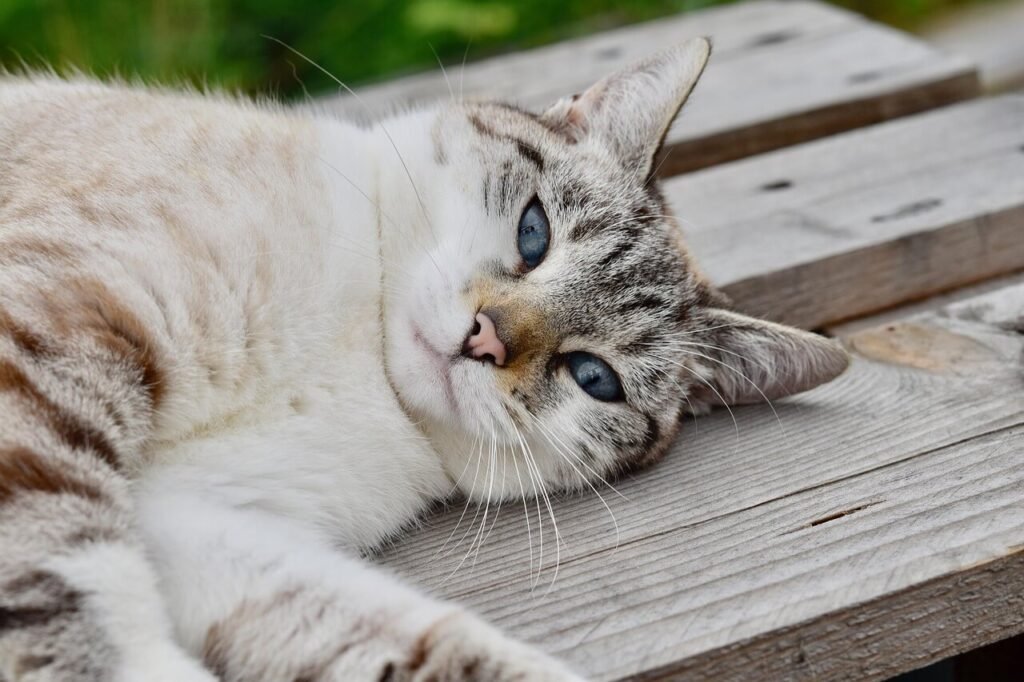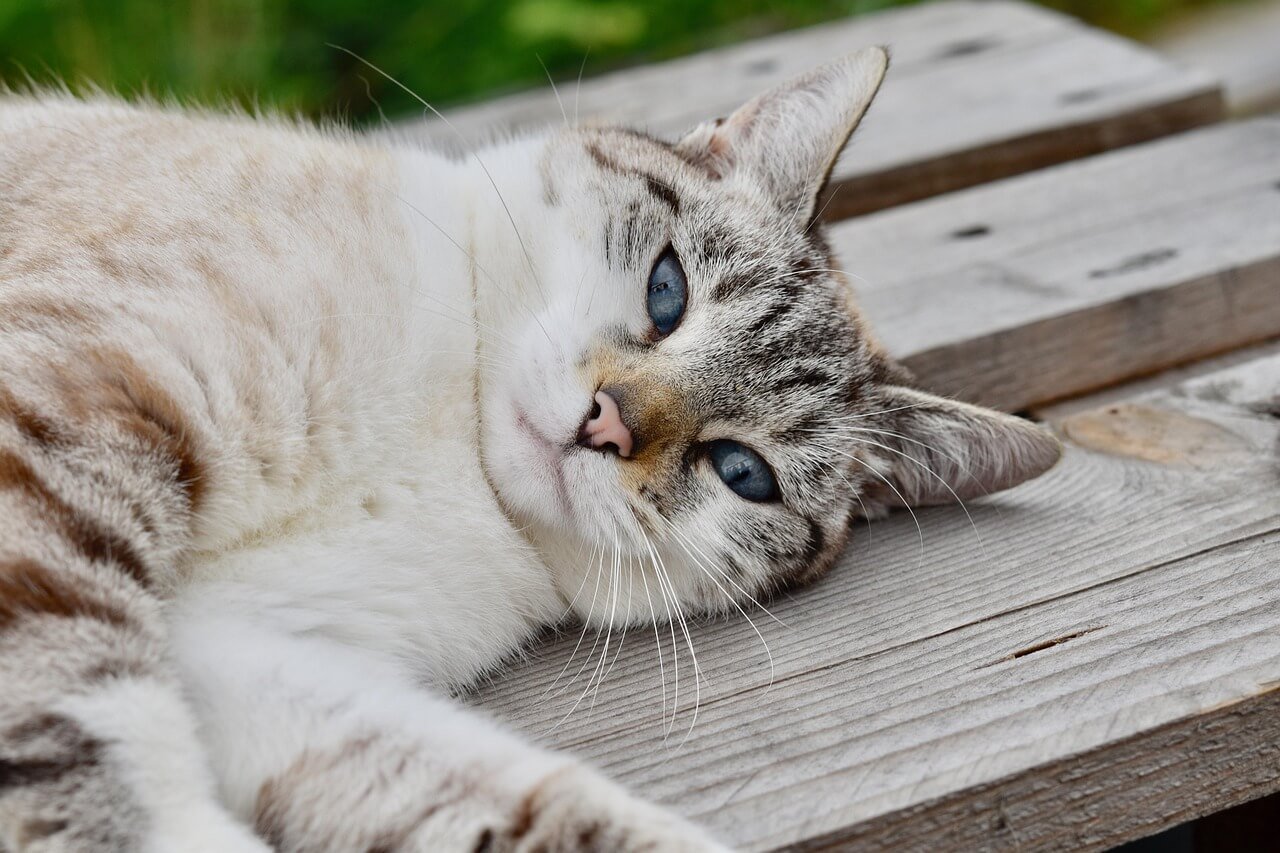Can Cats Eat Bananas? A Guide for Curious Cat Owners
Bananas are a sweet, nutritious fruit enjoyed by millions of people worldwide—but what about our feline friends? If you’ve ever wondered, “Can cats eat bananas?” you’re not alone. Many cat owners are curious about whether this popular fruit is safe or even beneficial for their pets. While cats are obligate carnivores and don’t require fruits in their diet, some human foods can be offered as occasional treats. In this blog post, we’ll explore whether bananas are safe for cats, how they might benefit from them, and what precautions you should take. Let’s dive into the details and ensure your furry friend stays happy and healthy!
Are Bananas Safe for Cats to Eat?
While bananas aren’t toxic to cats, they should be given in moderation due to their high sugar content. Here’s what you need to know about feeding bananas to your cat:
Natural Sugars
Bananas contain natural sugars like fructose, which can upset a cat’s digestive system if consumed in large amounts.Low Nutritional Value for Cats
Cats lack the enzymes needed to process plant-based foods efficiently, so bananas offer minimal nutritional benefits for them.Potential Allergies
Some cats may have sensitivities or allergies to bananas, leading to symptoms like itching or digestive upset.Moderation is Key
A small piece of banana as an occasional treat is fine, but overfeeding can lead to obesity or diabetes.No Artificial Additives
Ensure the banana is plain and free from added sugars, syrups, or flavorings, which can harm your cat.
In summary, while bananas are generally safe for cats, they should only be given sparingly and in small amounts. Always monitor your cat’s reaction after introducing any new food.
Potential Benefits of Bananas for Cats
Although bananas aren’t a necessary part of a cat’s diet, they do offer a few minor benefits when fed responsibly. Here’s how bananas might positively impact your cat:
Source of Energy
The natural sugars in bananas provide a quick energy boost, though this isn’t typically needed for most cats.Rich in Potassium
Bananas are packed with potassium, which supports muscle function and heart health—though cats usually get enough from their regular diet.Hydration Support
The high water content in bananas can help keep your cat hydrated, especially if they’re reluctant drinkers.Digestive Aid (in Small Amounts)
The fiber in bananas may aid digestion, but too much can cause diarrhea or constipation.Occasional Treat Option
Bananas can serve as a healthy alternative to processed cat treats, provided they’re given in tiny portions.
While these benefits exist, they’re not significant enough to make bananas a dietary staple for cats. Use them sparingly as a special treat instead.
Check this guide 👉Can Cats Eat Blueberries? Best 7 Health Tips!
Check this guide 👉Can Cats Eat Cinnamon? Best 7 Health Tips!
Check this guide 👉Can Cats Eat Garlic? Best 7 Expert Tips!

Benefits of Bananas for Cats | Precautions When Feeding Bananas |
|---|---|
Provides quick energy | High sugar content can cause weight gain |
Rich in potassium | Avoid artificial additives or flavors |
Helps with hydration | Watch for allergic reactions |
Contains fiber for digestion | Limit portion sizes to prevent upset stomach |
Can be a healthy treat option | Not nutritionally essential for cats |
How to Safely Introduce Bananas to Your Cat’s Diet
If you decide to share a bit of banana with your cat, it’s important to do so safely. Follow these guidelines to ensure your cat enjoys the treat without any adverse effects:
Start with a Tiny Piece
Offer a very small piece of banana—about the size of a thumbnail—to gauge your cat’s reaction.Observe for Reactions
Monitor your cat for signs of digestive upset, such as vomiting or diarrhea, after eating the banana.Peel and Prepare Carefully
Always peel the banana and remove any seeds or tough parts before offering it to your cat.Avoid Overfeeding
Limit banana treats to once a week or less to prevent excessive sugar intake.Consult Your Veterinarian
If your cat has underlying health issues, ask your vet before introducing bananas or other human foods.
By following these steps, you can safely incorporate bananas into your cat’s diet without risking their health. Remember, moderation is key!
Signs Your Cat May Not Tolerate Bananas
Not all cats will enjoy or tolerate bananas, and some may experience adverse reactions. Here are signs to watch for if you introduce bananas to your cat:
Upset Stomach
Vomiting or diarrhea could indicate that your cat’s digestive system can’t handle bananas.Lethargy
A sudden lack of energy or interest in activities might suggest an allergic reaction or intolerance.Itching or Skin Irritation
Excessive scratching, redness, or swelling could signal an allergic response to bananas.Loss of Appetite
Refusal to eat regular meals after trying bananas may indicate discomfort or illness.Behavioral Changes
Unusual aggression, hiding, or vocalization could point to discomfort caused by the new food.
If you notice any of these signs, stop feeding bananas immediately and consult your veterinarian. Every cat is unique, and what works for one may not work for another.
Common Misconceptions About Feeding Bananas to Cats
There are several misconceptions about feeding bananas to cats that can lead to confusion among pet owners. Clearing these up ensures you make informed decisions about your cat’s diet. Here are some common myths and the truth behind them:
Myth: Bananas are a healthy staple for cats.
Bananas lack essential nutrients that cats need, making them unsuitable as a regular part of their diet.Myth: All cats love bananas.
While some cats may enjoy the taste, others might be indifferent or even dislike it due to their carnivorous nature.Myth: Bananas are safe in any quantity.
Even though bananas aren’t toxic, excessive consumption can lead to health issues like obesity or diabetes.Myth: Banana peels are harmless for cats.
Banana peels are indigestible and can cause blockages or choking hazards if ingested.Myth: Cats need fruit for a balanced diet.
Cats are obligate carnivores and derive all necessary nutrients from animal-based proteins, not fruits.
Understanding these facts helps ensure you feed your cat responsibly and avoid unnecessary risks.
Fun Facts About Cats and Their Dietary Preferences
Cats have unique dietary habits and preferences shaped by their biology and instincts. Here are some fun facts about feline eating behaviors and how they relate to human foods like bananas:
Cats Lack Sweet Taste Receptors
Unlike humans, cats can’t taste sweetness, so they’re unlikely to crave bananas for their flavor.Obligate Carnivores by Nature
Cats thrive on diets high in protein and fat, which is why fruits like bananas aren’t a natural food source for them.Curiosity Drives Food Exploration
Cats may show interest in bananas simply because they’re curious, not because they find them particularly tasty.Hydration Comes First
Cats often prioritize water-rich foods, but bananas shouldn’t replace their primary hydration sources like fresh water or wet food.Selective Eaters
Most cats are picky eaters, so even if they try a banana once, they may not want it again.
These fun facts highlight the fascinating quirks of feline nutrition and remind us that cats have specific dietary needs that differ greatly from ours.
Tips for Introducing Other Safe Fruits to Your Cat
If your cat enjoys exploring new flavors, there are other safe fruits you can introduce besides bananas. Here are some tips for offering alternative fruits safely:
Start with Seedless Options
Choose fruits like watermelon or cantaloupe, ensuring they’re free of seeds or rinds that could pose hazards.Cut into Small Pieces
Small, bite-sized portions reduce the risk of choking and make it easier for your cat to nibble.Introduce One Fruit at a Time
Offer only one new fruit at a time to monitor your cat’s reaction and rule out allergies or intolerances.Avoid Citrus Fruits
Fruits like oranges or lemons contain citric acid, which can upset your cat’s stomach and irritate their skin.Stick to Moderation
Fruits should always be an occasional treat, never a replacement for their regular meat-based diet.
By following these guidelines, you can safely introduce new flavors to your cat’s palate while keeping their health and safety a top priority. Remember, variety is fun but not essential for their nutritional needs.
Frequently Asked Questions About Cats Eating Bananas
Can kittens eat bananas?
Yes, but only in very small amounts and under supervision, as their digestive systems are still developing.
How often can I give my cat bananas?
Once a week or less, in tiny portions, to avoid excessive sugar intake.
Are banana peels safe for cats?
No, banana peels are difficult to digest and can pose a choking hazard. Always remove the peel.
Can diabetic cats eat bananas?
No, bananas are high in sugar and can worsen blood sugar levels in diabetic cats.
What fruits are safe for cats besides bananas?
Apples (without seeds), blueberries, and watermelon (seedless) are safer alternatives in moderation.
Feeding Bananas to Your Cat: A Balanced Perspective
So, can cats eat bananas? The answer is yes—but with caution. While bananas are non-toxic and can be an occasional treat, they lack significant nutritional value for cats and should never replace their primary carnivorous diet. By offering bananas sparingly and monitoring your cat’s reaction, you can provide a fun and novel snack without compromising their health. Always prioritize your cat’s individual needs and consult your veterinarian before introducing new foods. With care and attention, you can keep your feline companion happy, healthy, and perhaps a little curious about your fruity snacks!
Do Cats Have Taste Buds? Best 7 Expert Tips! – Discover how cats experience flavors and why their taste is so unique.
Do Dogs Have Taste Buds? Best 7 Expert Tips! – Discover how dogs experience taste, their preferences, and what it means for their diet and health.
Can Cats Taste Sweet? Best 7 Expert Tips! – Discover why cats can’t taste sweetness, how it affects their diet, and tips to keep them healthy and happy.
Can Dogs Taste Sweet? Best 7 Expert Tips! – Discover how dogs perceive sweetness, which foods are safe, and tips to manage their sweet cravings responsibly.





